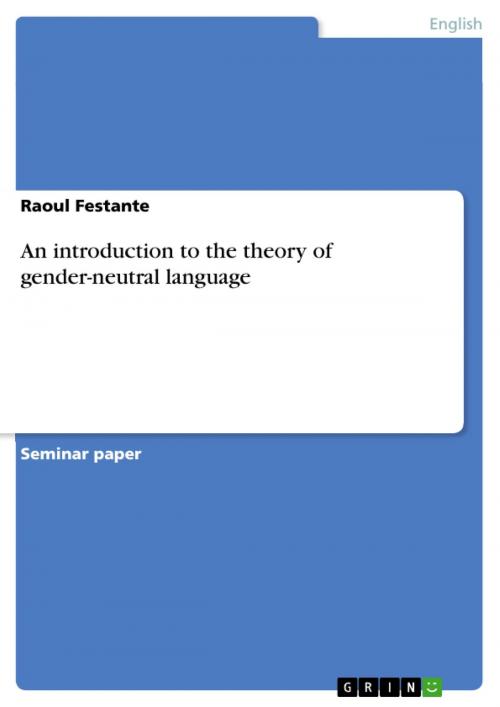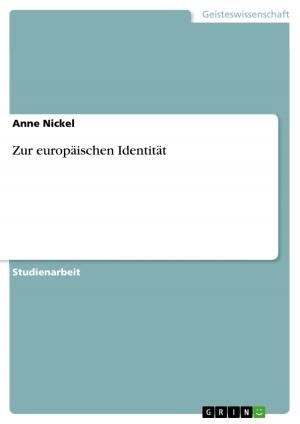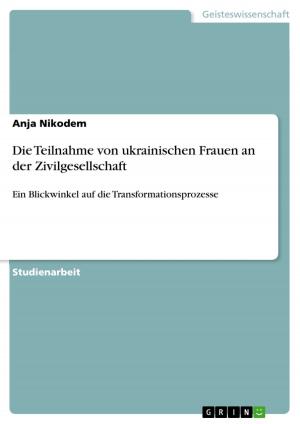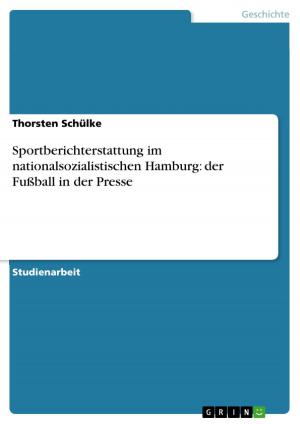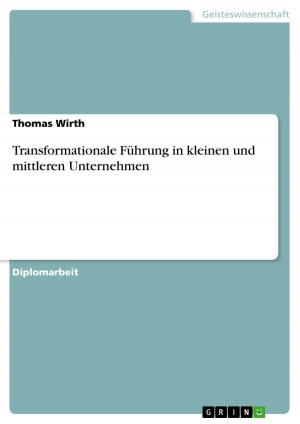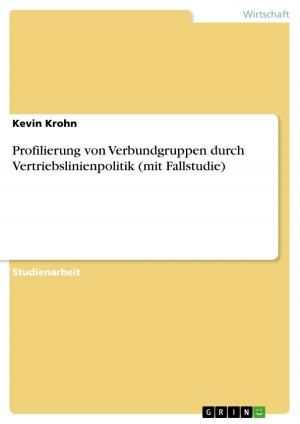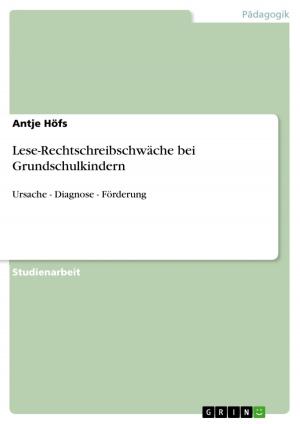An introduction to the theory of gender-neutral language
Nonfiction, Entertainment, Drama, Anthologies| Author: | Raoul Festante | ISBN: | 9783638407076 |
| Publisher: | GRIN Verlag | Publication: | August 8, 2005 |
| Imprint: | GRIN Verlag | Language: | English |
| Author: | Raoul Festante |
| ISBN: | 9783638407076 |
| Publisher: | GRIN Verlag |
| Publication: | August 8, 2005 |
| Imprint: | GRIN Verlag |
| Language: | English |
Seminar paper from the year 2004 in the subject English Language and Literature Studies - Linguistics, grade: 2, University of Hannover, course: Language and Gender, 5 entries in the bibliography, language: English, abstract: In the following paper I will deal with the concept of gender-neutral language. I will begin by looking at certain false generics that are commonly used in English Language and consider the position of gender-neutral language theorists to these false generics. Due to the fact, that the gender-neutral language theory offers very general recommendations and guidelines i felt difficult to do a corpus analysis. That is why I tried to concentrate only on the main positions of gender-neutral language theory and focus on central issues within he scope of this approach. I concentrate on two particular false generics that are at the focus of gender -neutral language theory; 'Man' as a generic form used in the English language to define male and female and the ambiguous use of the pronoun 'He' in contexts where both sexes are to be addressed. In the second and third chapter I will take a closer look at these false generics and exemplify how they create misunderstanding and actually promote a male centred perception. In the fourth chapter I will deal with the guidelines and recommendations of language planners and gender-neutral language theorists and work out their main positions. It will be argued, that language change is not an easy undertaking but requires perseverance and consistent argumentation. The biggest challenge for language planners who want to implement genderneutral language is perhaps the persistent resistance towards the understanding, that gender - neutral language is not an issue concerning only feminists. I will conclude by evaluating the gender-neutral language theory in terms of its practicability and give a personal opinion on the approach.
Seminar paper from the year 2004 in the subject English Language and Literature Studies - Linguistics, grade: 2, University of Hannover, course: Language and Gender, 5 entries in the bibliography, language: English, abstract: In the following paper I will deal with the concept of gender-neutral language. I will begin by looking at certain false generics that are commonly used in English Language and consider the position of gender-neutral language theorists to these false generics. Due to the fact, that the gender-neutral language theory offers very general recommendations and guidelines i felt difficult to do a corpus analysis. That is why I tried to concentrate only on the main positions of gender-neutral language theory and focus on central issues within he scope of this approach. I concentrate on two particular false generics that are at the focus of gender -neutral language theory; 'Man' as a generic form used in the English language to define male and female and the ambiguous use of the pronoun 'He' in contexts where both sexes are to be addressed. In the second and third chapter I will take a closer look at these false generics and exemplify how they create misunderstanding and actually promote a male centred perception. In the fourth chapter I will deal with the guidelines and recommendations of language planners and gender-neutral language theorists and work out their main positions. It will be argued, that language change is not an easy undertaking but requires perseverance and consistent argumentation. The biggest challenge for language planners who want to implement genderneutral language is perhaps the persistent resistance towards the understanding, that gender - neutral language is not an issue concerning only feminists. I will conclude by evaluating the gender-neutral language theory in terms of its practicability and give a personal opinion on the approach.
